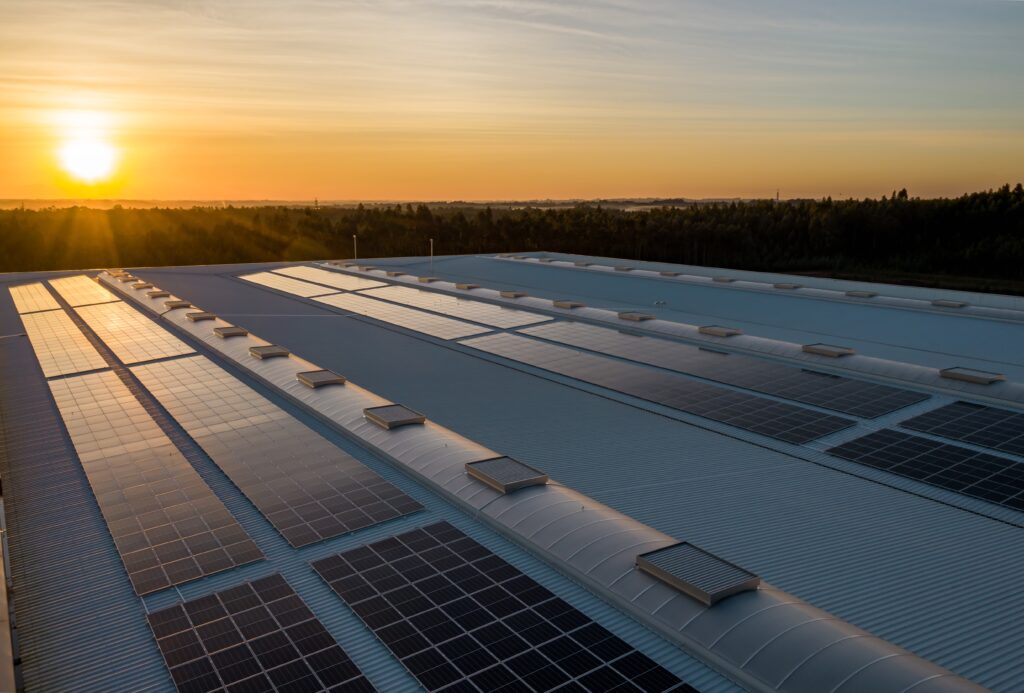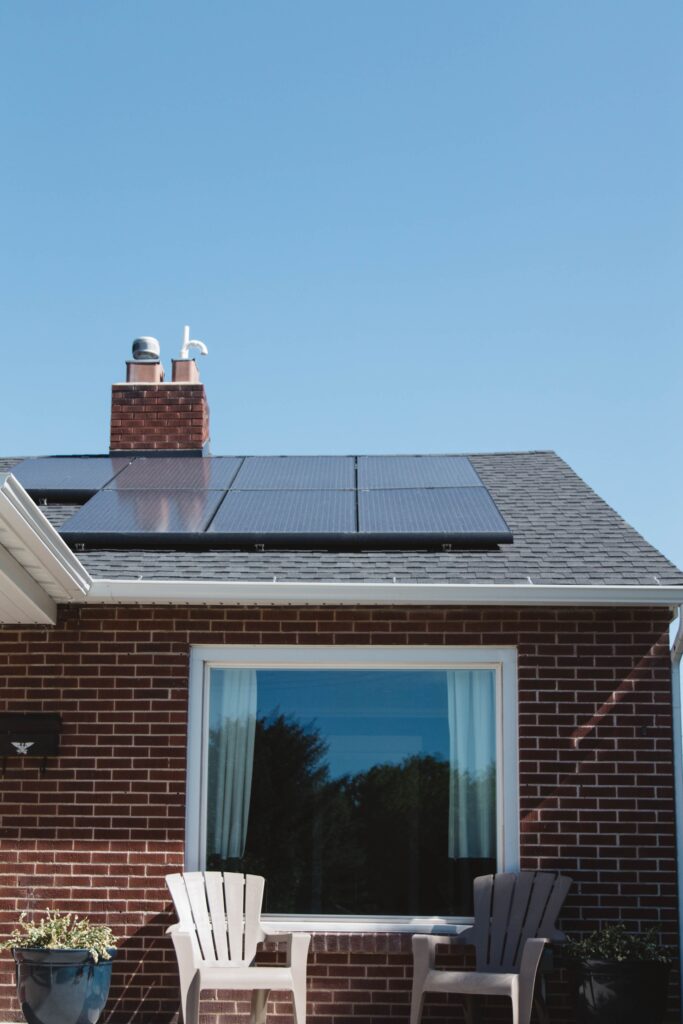Imagine having the power of the sun harnessed right at your fingertips. With a 500 watt solar panel, the possibilities are endless. From running small appliances to charging batteries, this solar panel has the potential to save you money and reduce your carbon footprint. Join us as we explore the incredible uses and benefits of a 500 watt solar panel!

Understanding Solar Panel Capacity
Concept of Panel Wattage
When considering solar panels, one of the most important factors to understand is the concept of panel wattage. The wattage of a solar panel refers to the maximum power output it can generate under optimal conditions. In the case of a 500 watt solar panel, it has the potential to produce up to 500 watts of power.
How energy is Stored
Solar panels convert sunlight into electricity using photovoltaic cells. The electricity generated by the solar panel can be stored in a battery or used directly to power various appliances and devices. The energy storage system allows you to have electricity available even when there is no sunlight, such as during the night or on cloudy days.
Variables that Affect Solar Panel Output
While a 500 watt solar panel has a rated capacity of 500 watts, the actual output can vary based on several variables. These variables include the amount of sunlight received, the angle and orientation of the solar panel, temperature, and any obstructions that may cast shadows on the panel. It’s important to consider these variables when determining the actual power output of a solar panel.
Theoretical Calculation of What a 500 Watt Panel Can Run
Basic Formulas and Calculations
To understand what a 500 watt solar panel can run, we can start by looking at some basic formulas and calculations. The amount of power an appliance consumes is typically measured in watts. To calculate the running time of an appliance with a certain power consumption using a 500 watt solar panel, you can use the formula:
Running Time (hours) = Battery Capacity (amp-hours) * Inverter Efficiency / Appliance Power Consumption (watts)
Ideal Case Scenario
In an ideal case scenario, where the 500 watt solar panel is receiving abundant sunlight and there are no losses due to inefficiencies or obstructions, it can generate 500 watts of power continuously. However, it’s important to note that this ideal scenario may not always be achievable in real-world conditions.
Appliances a 500 Watt Solar Panel Can Run
Lighting and Small Appliances
A 500 watt solar panel is typically sufficient to power a variety of lighting options. This includes LED lights, compact fluorescent lamps (CFLs), and small appliances such as fans, radios, and phone chargers. By efficiently managing your power consumption, you can enjoy these lighting and small appliance options without relying on the electrical grid.
Computers and Electronics
In terms of computers and electronics, a 500 watt solar panel can power a laptop or a desktop computer, as well as other low-power consuming electronics like tablets, smartphones, and Wi-Fi routers. However, it’s essential to consider the power consumption of these devices and their usage patterns to ensure they can be powered effectively by the solar panel.
Kitchen Appliances
Kitchen appliances often have higher power requirements, but a 500 watt solar panel can still run some energy-efficient kitchen appliances. These may include blenders, toasters, electric kettles, microwave ovens with lower wattage, and small refrigerators designed for low power consumption. It is important to be mindful of the power consumption of each appliance to determine if it can be supported by the solar panel.
Heating and Cooling Systems
Heating and cooling systems typically have high power requirements and may not be suitable to run solely on a 500 watt solar panel. However, energy-efficient alternatives, such as solar-powered fans or small space heaters, can be powered by the solar panel. It’s important to note that these systems may not provide the same level of heating or cooling capacity as traditional electric or gas-powered options.
Running Multiple Appliances on a 500 Watt Solar Panel
Power Usage of Common Household Appliances
To run multiple appliances simultaneously on a 500 watt solar panel, it’s important to consider the power usage of each appliance. Most appliances have a label or sticker indicating their power consumption in watts. By adding up the power consumption of the appliances you plan to use, you can determine if they can be operated together within the capacity of the solar panel.
Tips for Running Multiple Devices Simultaneously
To effectively run multiple devices simultaneously on a 500 watt solar panel, it’s important to be mindful of your power usage. Some tips to maximize your solar panel’s capacity include using energy-efficient appliances, turning off devices when not in use, and prioritizing essential appliances. By managing your power consumption effectively, you can make the most out of your solar panel’s capacity.

Limitations of a 500 Watt Solar Panel
General Power Restrictions
A 500 watt solar panel has its limitations when it comes to powering high-consuming appliances and devices. It may not be able to support power-hungry appliances like large refrigerators, air conditioners, or electric water heaters. For such appliances, a larger solar panel system would be required to meet the power demands.
Impact of Weather Conditions
Weather conditions play a crucial role in the performance of a solar panel. Cloudy or overcast days can reduce the panel’s efficiency, resulting in lower power output. It’s important to consider the average weather conditions in your area and how they may affect the overall performance of a 500 watt solar panel.
Space Requirements for Installation
A 500 watt solar panel requires adequate space for installation. The physical dimensions of the panel need to be considered, along with any necessary clearances for optimal sunlight exposure. It’s essential to have a suitable rooftop or open ground area available to accommodate the solar panel and ensure it is properly installed.
Benefits of Using a 500 Watt Solar Panel
Energy Savings
Using a 500 watt solar panel can lead to significant energy savings. By harnessing the power of the sun, you can reduce your reliance on the electrical grid and lower your energy bills. Over time, the savings generated from using solar energy can offset the initial investment and provide long-term financial benefits.
Environmentally Friendly
Solar panels are a clean and renewable source of energy, making them environmentally friendly. By using solar energy, you reduce your carbon footprint and contribute to a greener future. The production of electricity from solar energy produces zero greenhouse gas emissions, unlike traditional fossil fuel-based electricity generation.
Reduced Energy Bills
One of the major benefits of using a 500 watt solar panel is the potential reduction in energy bills. By generating your own electricity, you can offset the power consumption from the electrical grid, resulting in lower energy bills. This can be particularly beneficial in regions with high electricity rates or frequent power outages.

Upgrading Your 500 Watt Panel for Greater Energy Requirements
How to Add More Panels
If your energy requirements increase or you find that a 500 watt solar panel is no longer sufficient, you have the option to upgrade your solar panel system. You can add more panels to your existing setup to increase the overall power capacity. It’s important to consult with a professional solar installer to ensure the system is properly designed and integrated.
Benefits of Upgrading Your Solar Panel System
Upgrading your solar panel system offers several benefits. You can meet higher energy demands, power additional appliances, and potentially generate excess electricity that can be sold back to the grid. Upgrading may also allow you to take advantage of newer and more efficient solar panel technologies, maximizing the overall performance of your system.
Professional Installation vs DIY for 500 Watt Solar Panel
Advantages of Professional Installation
Opting for professional installation of a 500 watt solar panel system ensures that it is properly designed, installed, and integrated. Professional installers have the expertise and experience to assess your energy requirements, recommend the appropriate system size, and ensure compliance with local regulations. They can also handle any necessary permits and inspections, giving you peace of mind.
Considerations for DIY Installation
If you have the necessary knowledge, skills, and resources, you may consider a DIY installation for a 500 watt solar panel system. DIY installations can be cost-effective and provide a sense of accomplishment. However, it’s crucial to thoroughly research and understand the installation process, safety requirements, and local regulations before attempting a DIY project.
Hidden Costs Associated with Each Option
Both professional installation and DIY installation come with their own set of costs. Professional installation may involve upfront expenses for labor and equipment, while DIY installation may require you to purchase specialized tools and equipment. Additionally, a DIY installation carries the risk of potential mistakes or system inefficiencies that can lead to further costs down the line.
Maintenance of 500 Watt Solar Panel
Routine Cleaning
Proper maintenance is essential to ensure the optimal performance and longevity of a 500 watt solar panel. Regularly cleaning the panel’s surface helps remove dust, debris, and any other substances that may hinder sunlight absorption. Cleaning can be done using a soft brush, non-abrasive sponge, and a mild detergent diluted in water. It’s important to follow the manufacturer’s guidelines for cleaning and avoid using harsh chemicals or abrasive materials.
Professional Inspection
Periodic professional inspection of a 500 watt solar panel system is recommended to detect any potential issues or inefficiencies. Professional inspectors can assess the overall condition of the system, check for proper electrical connections, and identify any areas that may require maintenance or repair. These inspections help ensure the continued performance and safety of the solar panel system.
Dealing with Wear and Tear
Over time, a 500 watt solar panel may experience wear and tear due to exposure to the elements. It’s important to monitor the condition of the panel and its components regularly. If any damage or degradation is noticed, it’s advisable to contact a professional for repair or replacement. Promptly addressing wear and tear can prevent further damage and prolong the lifespan of the solar panel.
Cost considerations for a 500 Watt Solar Panel
Initial Purchase Price
The initial purchase price of a 500 watt solar panel depends on various factors, including the brand, quality, and additional components included in the system. It’s important to compare prices from different suppliers and consider the overall value, warranty, and reliability of the product when making a purchasing decision.
Installation costs
Installation costs for a 500 watt solar panel system can vary based on factors such as the complexity of the installation, the location, and any additional electrical work required. In the case of professional installation, labor costs will also contribute to the overall installation expenses. It’s recommended to obtain quotes from multiple installers to compare costs and choose the most suitable option.
Maintenance and Replacement Costs over Time
While a 500 watt solar panel generally requires minimal maintenance, it is essential to consider any potential maintenance or replacement costs over time. This may include the cost of routine cleaning, professional inspections, and occasional repairs. It’s advisable to factor in these costs when evaluating the long-term financial benefits of using a 500 watt solar panel.
In conclusion, a 500 watt solar panel can power a range of lighting, small appliances, computers, and electronics. However, it may have limitations when it comes to powering high-consuming appliances and heating/cooling systems. Careful consideration of power requirements, weather conditions, and space availability is necessary. Upgrading or adding more panels can cater to increased energy requirements, while professional installation ensures optimal performance and compliance with regulations. Routine cleaning, professional inspection, and dealing with wear and tear are important maintenance tasks. Cost considerations should be made for the initial purchase, installation, and long-term maintenance of a 500 watt solar panel system. By understanding the capabilities and limitations of a 500 watt solar panel, you can make an informed decision about utilizing solar energy for your needs.




